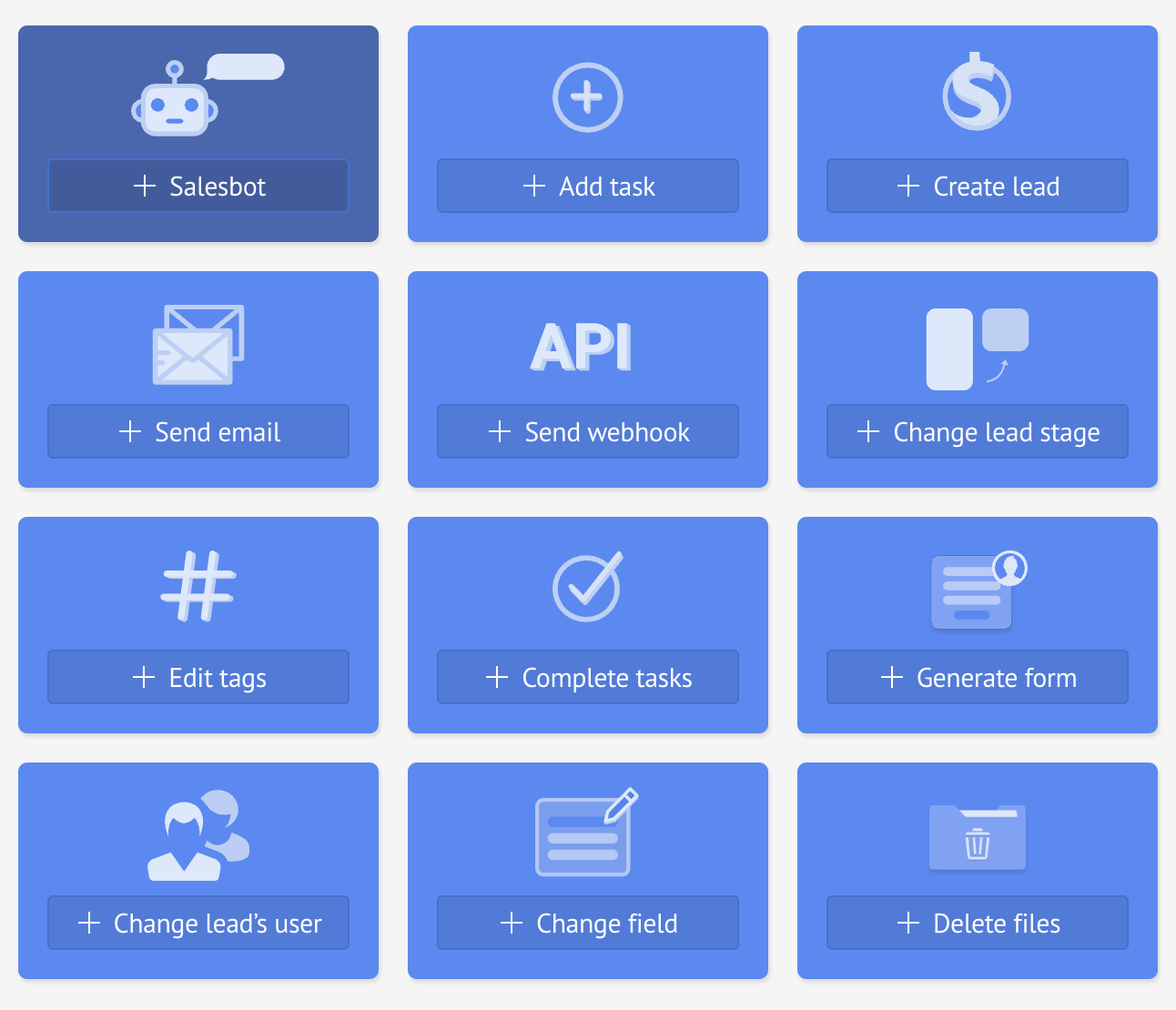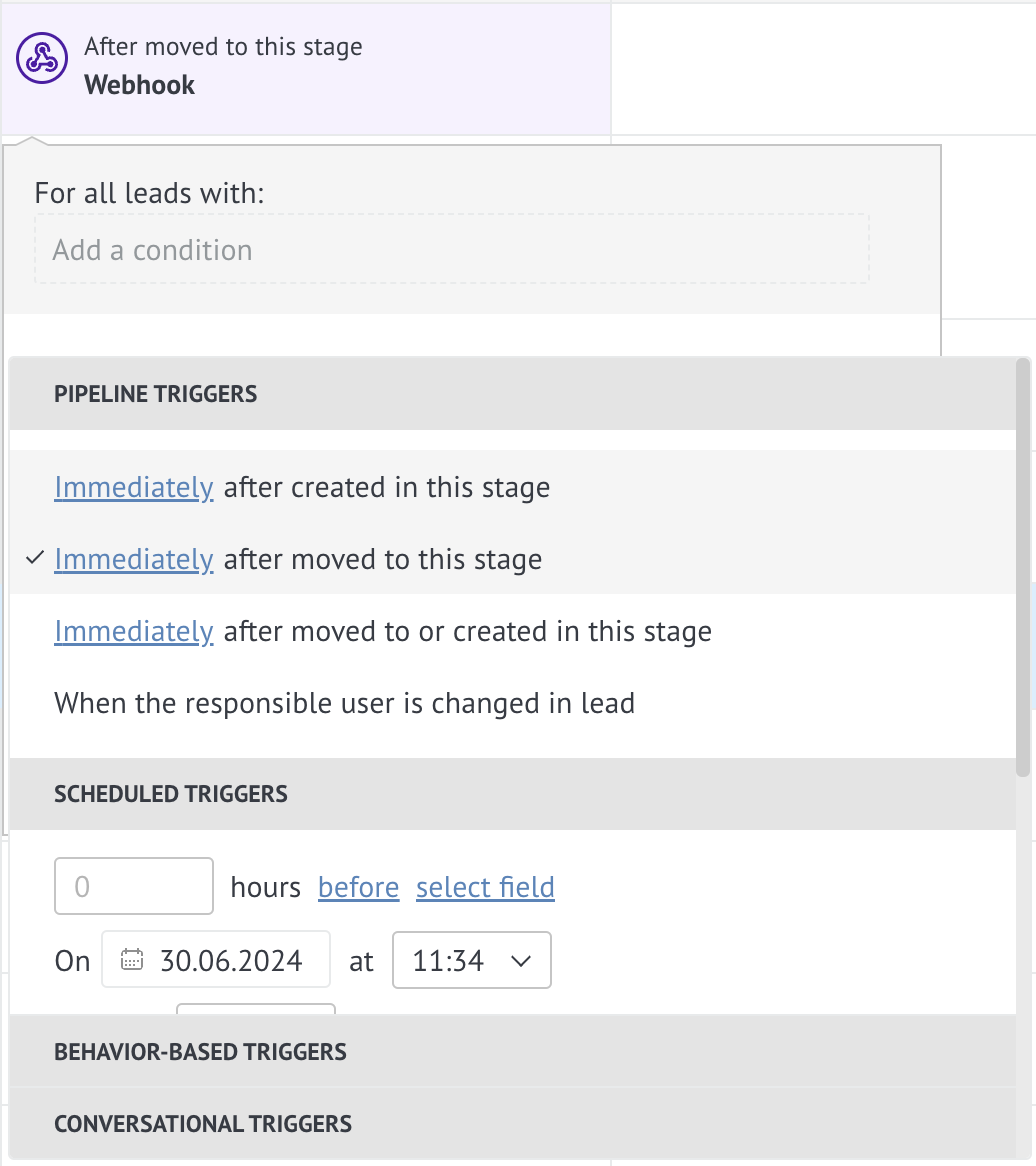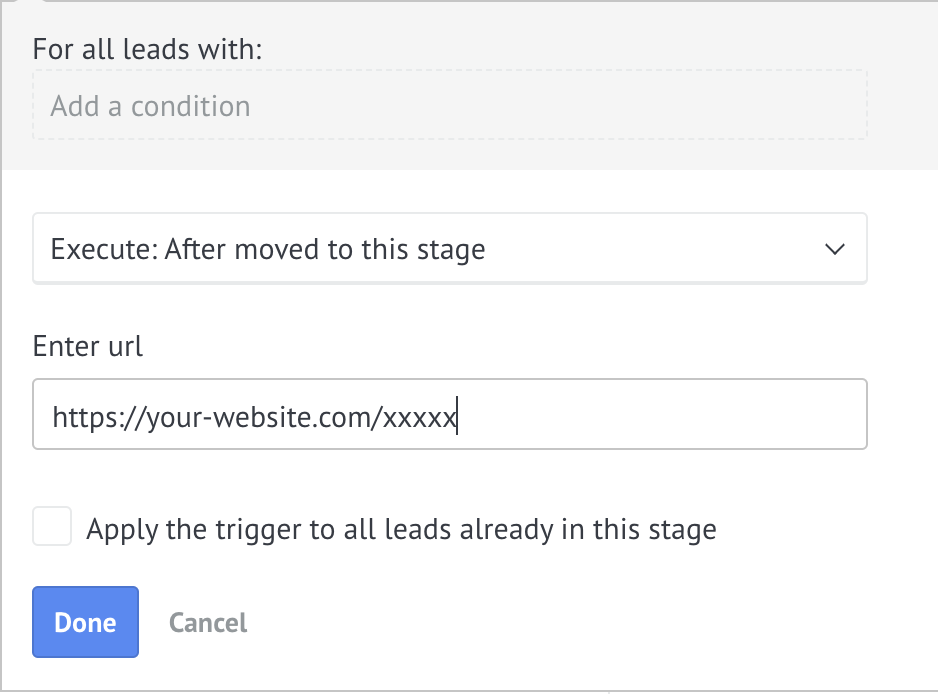Webhooks in Digital Pipeline
WebHooks in digital pipeline
Webhooks are notifications sent to third-party applications to inform them about events that have occurred in Kommo. You can configure the HTTP addresses of your applications and associated rules in the digital pipeline settings in Kommo.
More information about this technology can be found in the WebHooks REST API section. Although the technology used for Webhooks in the digital pipeline is similar to that in the account settings (Settings ➡ Integration ➡ 🪝Web hooks), there are several differences.
- First, the list of events for which notifications are sent is more limited.
- Second, in the digital pipeline, unlike in the account settings, a webhook is sent only once for each event that occurs, with no retry attempts.
List of possible events:
- Incoming email
- Incoming call
- Incoming chat message
- Visiting the site
- Changing a stage
To create a webhook
Go to the Digital Pipeline (Leads ➡ Automate in the top right corner) and select to add an automatic action for all leads on the stage you need.

Then select API: + Send webhook.

Select the event that will trigger the webhook.

Enter the URL to which the webhook will be sent.

Format of the data to be sent
The webhook sends a POST request to the third-party application containing a variable with the following format: {"lead":{"event":{entity fields array}}}.
Event Settings
| Parameter | Description |
|---|---|
| call_in | Incoming call event |
| chat | An event with an incoming message from the chat |
| site_visit | Event when website is visited |
| mail_in | Incoming mail event |
| status | Moving to a stage event |
Field Parameters of the Entity
| Parameter | Description |
|---|---|
| id | Lead ID |
| old_pipeline_id | ID of the previous digital pipeline |
| pipeline_id | ID of the new digital pipeline |
| old_status_id | ID of the previous |
| status_id | ID of the new stage |
Examples
Incoming email event:
{
"leads": {
"mail_in": {[
"id": XXXXXXX,
"pipeline_id": 1111XXX,
"status_id": 2222XXX
]}
}
}Moving to another stage event:
{
"leads": {
"status": {[
"id": XXXXXXX,
"old_pipeline_id": 123XXX,
"pipeline_id": 321XXXX,
"old_status_id": 567XXXX
"status_id": 765XXXX
]}
}
}Updated 8 months ago